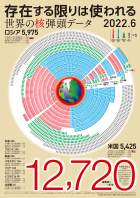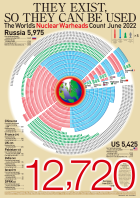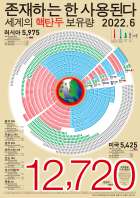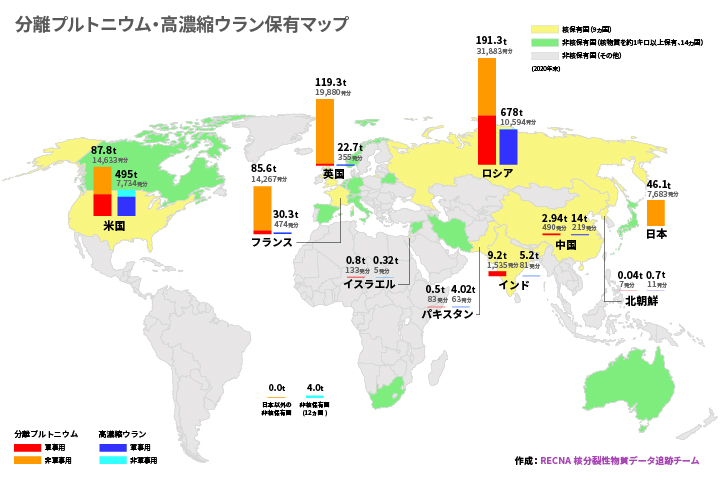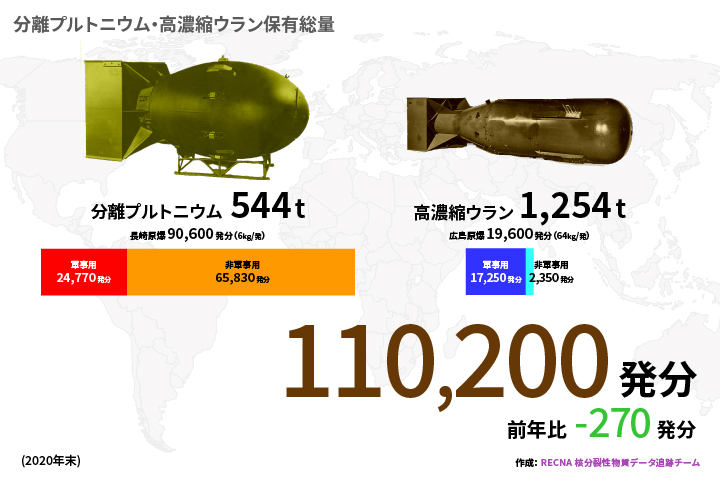2022年5月25日
長崎大学核兵器廃絶研究センター(RECNA)見解
2022年5月25日
2022年5月21日、23日と続けて韓米首脳共同声明1 、日米首脳共同声明2 が発表された。今回の共同声明は、ウクライナ危機に始まる安全保障及び同盟関係のみならず、経済安全保障、気候変動、パンデミックなど幅広いテーマを含む包括的な共同声明となっている。その中で北東アジアの非核化と安全保障、ならびに核軍縮・不拡散の観点からとくに注目すべき点について、RECNAの見解をまとめた。
1. 朝鮮半島の非核化:信頼醸成と地域全体の新たな安全保障の枠組み提起を
韓米・日米共同声明において、ともに「朝鮮半島の非核化」へのコミットメントが確認された。今後はその進め方が一段と重要な課題となるが、RECNAとしては、シンガポール米朝共同声明3 の精神を引き継いで、朝鮮半島の安定と平和にむけた外交を強めることが肝要と考える。そのためにも中国・ロシアも含め、北東アジア全体での信頼醸成と対話の努力を継続し、新たな安全保障の枠組みを提起していく必要がある。そこでは軍縮・軍備管理の枠組みの構築も不可欠で、安全保障と軍縮・軍備管理は切り離すことのできない、一対の関係にある。また、パンデミック危機を迎えている北朝鮮への人道支援を含め、「対立」を超えた緊張緩和への外交努力が求められる。北朝鮮は、核・ミサイル実験を自制し、対話の道に踏み出すことが最良の選択肢と判断すべきである。
共同声明は北朝鮮・中国・ロシアの脅威に対応すべく「拡大抑止・対処力の強化」を盛り込んだが、そこに偏れば逆に地域の緊張をさらに高めるリスクがある。共同声明が示した指導者レベルのコミュニケーションや対話の必要性を常に認識し、危機回避のための外交戦略の練り直しを強く求める。
2. 核軍縮と核不拡散:「核不使用」の規範強化を
韓米共同声明には含まれていないが、日米共同声明では、「核兵器のない世界」にむけての意思が確認され、核不拡散条約(NPT)の強化や、透明性向上、ウクライナ危機でより現実のものとして認識されるようになった核リスク低減が明記された点は評価できる。しかし、NPT第6条の遵守は含まれなかった。今年8月に開催予定のNPT再検討会議に向けて、「核戦争は戦ってはならない」という2022年1月3日に公表された五大核兵器国の首脳共同声明4 に則り、核保有国に対して「核不使用」の規範強化を改めて訴えておきたい。
3. 「G7サミットの広島開催」:被爆地から核軍縮の新たな潮流を
共同記者会見5 で2023年「G7サミットの広島開催」が公表されたことは被爆地として大いに歓迎すべき決定である。核軍拡の流れをとめ、新たな核軍縮の流れをつくる絶好の機会である。被爆地から、核兵器のもたらす「非人道性」「被爆の実相」を改めて世界に訴え、G7首脳が被爆地で「核兵器のない世界」にむけて新たな決意を示すことが期待される。
1 “US-ROK Leaders’ Joint Statement”, May 21, 2022. https://www.whitehouse.gov/briefing-room/statements-releases/2021/05/21/u-s-rok-leaders-joint-statement/
2 日米首脳共同声明「自由で開かれた国際秩序の強化」、2022年5月23日。 https://www.mofa.go.jp/mofaj/na/na1/us/shin4_000018.html
3 “Joint Statement of President Donald J. Trump of the United States of America and Chairman Kim Jong Un of the Democratic People’s Republic of Korea at the Singapore Summit”, June 12, 2018. https://trumpwhitehouse.archives.gov/briefings-statements/joint-statement-president-donald-j-trump-united-states-america-chairman-kim-jong-un-democratic-peoples-republic-korea-singapore-summit/
4 “Joint Statement of the Leaders of the Five Nuclear-Weapon States on Preventing Nuclear War and Avoiding Arms Race”, January 3, 2022. https://www.whitehouse.gov/briefing-room/statements-releases/2022/01/03/p5-statement-on-preventing-nuclear-war-and-avoiding-arms-races/
「核戦争に勝者はありえず、核戦争は決して戦ってはならない-5核兵器国首脳共同声明の意義と課題」、RECNA Policy Paper(REC-PP-13), 2022年3月。 https://www.recna.nagasaki-u.ac.jp/recna/bd/files/REC-PP-13.pdf
5 「来年のG7サミット、広島で開催へ 日米首脳会談でバイデン氏賛同」、朝日新聞、2022年5月23日。 https://digital.asahi.com/articles/ASQ5R4R2CQ5RUTFK00Y.html
上へ戻る⇑
>>【レクナの目】記事一覧
